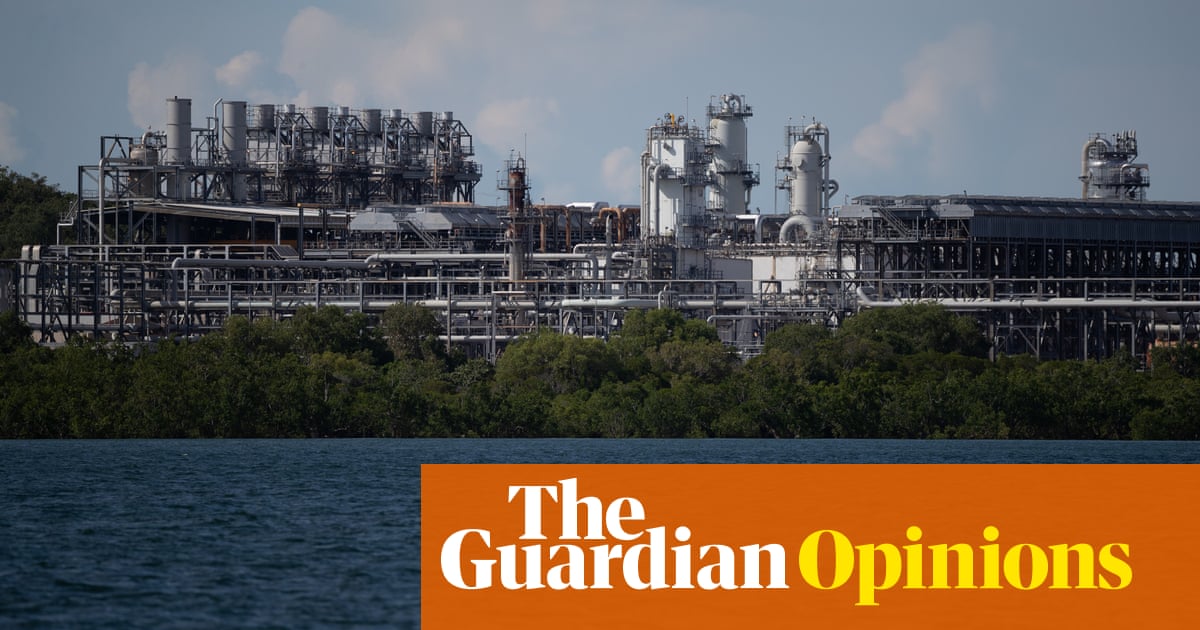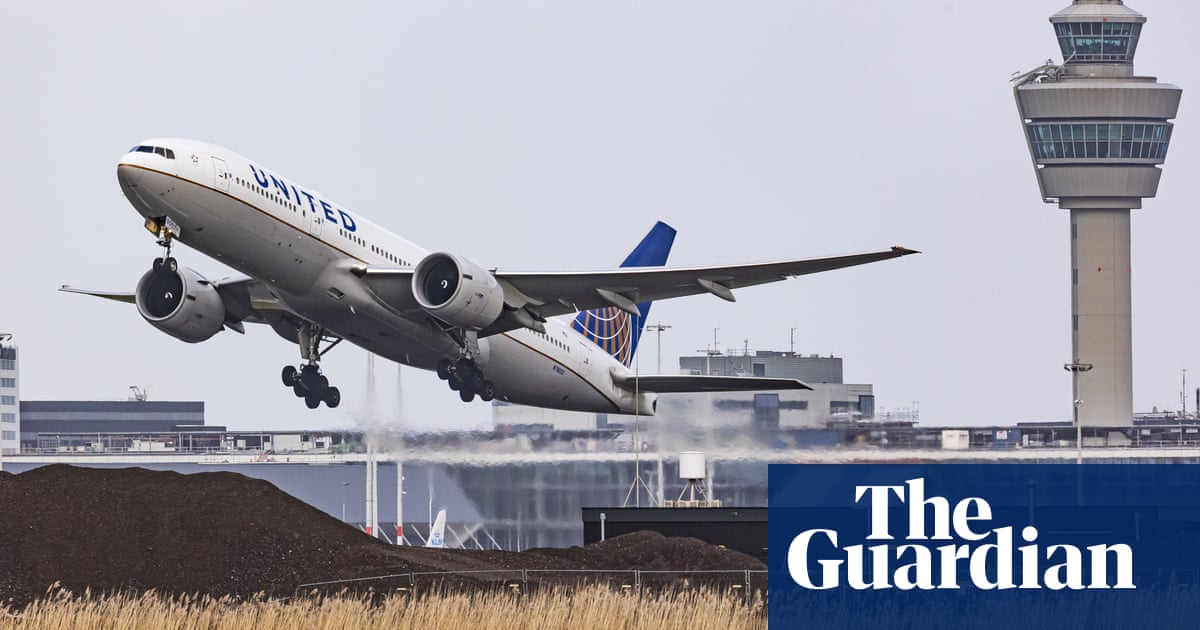The claim that Australian gas exports are âcleanâ and needed to drive the transition to net zero greenhouse gas emissions has become an article of faith for significant parts of the countryâs industry, media and political classes â often repeated, only occasionally challenged.
It has buttressed a massive expansion of the liquified natural gas (LNG) industry in the north of the continent over the past decade, with major new developments in Queensland, Western Australia and the Northern Territory.
Actually, âmajorâ doesnât really cut it in describing the scale of the LNG facilities at Gladstone, in the Pilbara and near Darwin. They hoover up about 80% of the gas extracted in Australia, either using it on-site or shipping it to Japan, China, Taiwan or South Korea.
Itâs a highly lucrative business. Revenue across the Australian LNG industry last financial year was nearly A$70bn. Infamously, the federal governmentâs tax take has not kept pace with the industryâs extraordinary growth.
This sort of income is a pretty powerful incentive to justify what your industry does, especially when what it does leads to accusations it is damaging the planet and peopleâs lives and livelihoods. The Australian gas industry has excelled in asserting that it is helping in the fight against the climate crisis.
Mainly, it argues that its LNG exports are replacing and displacing coal in Asia â and that gas has roughly half the emissions of coal when burned to create electricity. Ergo, Australian gas must be cutting global climate pollution. This line has been swallowed and repeated by politicians from the major parties in federal and state governments.
Former Coalition energy and emissions reduction minister, and current shadow treasurer, Angus Taylor claimed in parliament that the gas industry was cutting global emissions by 150m tonnes a year â an extraordinary amount if true, equivalent to about a third of Australiaâs annual climate pollution. The current resources minister, Madeleine King, argues Australiaâs Asian trading powers âdepend on our gas to meet their commitments to net zeroâ.
The Western Australian premier, Roger Cook, has probably been the most audacious, declaring that gas from his state was leading to a âdramatic reduction in global emissionsâ and it had a responsibility to continue to sell it or people may die.
Over the past five years, Guardian Australia has asked industry leaders and MPs for specific evidence showing that Australian LNG is substantially displacing coal in Asian countries, or that LNG has substantially lower emissions than coal across its lifecycle. We are yet to receive any.
That failure to produce data to support these claims looks more conspicuous after a peer-reviewed study published in the journal Energy Science and Engineering earlier this month. Robert Howarth, a professor of ecology and environmental biology at New Yorkâs Cornell University, calculated the total emissions from the US LNG industry, which exports to Europe and Asia.
Once all upstream stages were factored in â extraction, piping to a processing facility, compression from gas into liquid form, shipping, decompression back to gas and burning for energy â he estimated the total climate pollution from LNG was 33% greater than that from coal over a 20-year period.
This is not an entirely new idea â previous studies have suggested the gas industry is dirtier than often claimed â but it is nevertheless a potentially extraordinary finding. It should have major ramifications for how policymakers think about what is necessary to cut emissions to as near zero as possible.
A key finding of Howarthâs study is that more gas leaks into the atmosphere before it is burned than is usually assumed. This has been successfully spun over decades as ânatural gasâ, which sounds harmless. In reality it is methane â a short-lived but potent fossil fuel that has about 80 times the atmospheric heat-trapping power of carbon dioxide over a 20-year period.
The Guardian asked Howarth whether he thought his US findings were likely to apply to the Australian LNG industry. He replied: âThere is no fundamental reason to believe LNG exports from Australia would differ much in terms of greenhouse gas emissions from those from the US.â
There are caveats, of course. No two fossil fuel developments are exactly the same, and there are differences in both the fugitive emissions (those that escape from a mine, well or pipeline) and the combustion emissions resulting from different sites. Some will be worse than others.
But the clear overarching message from the study is bigger than site-specific variation. As Prof Drew Shindell, a climate scientist at Duke University, told my colleague Oliver Milman, the issue isnât really whether gas is slightly better or worse than coal. Itâs that both are terrible for the climate and âwe need to get rid of both of themâ.
In other words: we need to kill the idea that gas is clean, even in relative terms, and should use as little as possible as quickly as possible.
That doesnât mean just turning off the tap. Some gas will be needed in Australia for at least the medium-term to back up the electricity supply. It wonât be much. It is expected that fast-starting gas plants that are turned on only when required will continue to provide an important chunk â probably less than 10% â of total generation.
Some gas is also still used in high-temperature manufacturing processes and in heating and cooking. The latter could be relatively simply replaced given there are affordable alternatives that are not only better for the planet, but cheaper and healthier for households.
These domestic issues need to be addressed, but should be treated as a separate discussion to the export industry, which has a much more significant climate impact and is largely treated as though it is not Australiaâs responsibility.
Again, no one is saying that supply should be shut off overnight. Trade relationships should be managed.
But Howarthâs study makes clear, not for the first time, that an honest national conversation about the real cost of our fossil fuel exports â both coal and gas â and what more the country should be doing to limit their impact, is beyond well overdue.



